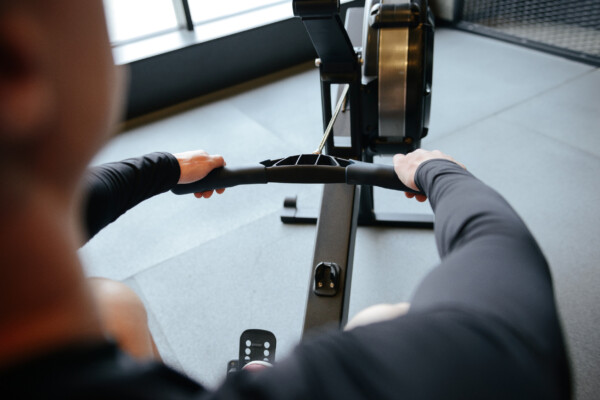By Joseph Siska, SPT
In today’s fast-paced world, it’s easy to overlook the importance of regular exercise. But if there’s one form of exercise that should never be neglected, it’s cardiovascular exercise. Whether you’re a fitness enthusiast or a couch potato, integrating cardiovascular workouts into your routine can significantly improve your overall health and well-being.
What is Cardiovascular Exercise?
Cardiovascular exercise, AKA, aerobic exercise, is any physical activity that raises your heart rate and gets your blood pumping1. This includes activities like running, swimming, cycling, brisk walking, and dancing. The primary aim of cardiovascular exercise is to increase the body’s need for oxygen1,2.
Why is Cardiovascular Exercise Important?
1. Heart Health: Perhaps the most obvious benefit of cardiovascular exercise is the positive impact it has on the heart. Regular aerobic activity strengthens the heart muscle, enabling it to pump blood more efficiently2. This lowers blood pressure and reduces the risk of heart diseases and heart attacks.
2. Weight Management: If shedding a few pounds is on your agenda, cardio workouts are your best friend. They help burn calories, making it easier to achieve and maintain a healthy weight3. Moreover, regular aerobic exercise boosts metabolism, contributing to long-term weight management.
3. Improved Mood: Cardiovascular exercise stimulates the release of endorphins, the body’s natural mood lifters. This not only reduces stress and anxiety but also combats feelings of depression, leaving you feeling happier, healthy, and more energized4.
4. Increased Stamina: As you continue with your cardiovascular workouts, you’ll notice an improvement in your endurance. Tasks that once left you breathless will become easier, allowing you to tackle daily activities with more energy3.
5. Enhanced Cognitive Function: Not only is cardio good for your body, but it’s also great for your brain too! Research has shown that regular aerobic exercise can improve cognitive function, memory, and concentration. Regular exercise enhances blood flow to the brain, promoting the growth of new brain cells and reducing the risk of cognitive decline as you age4.
6. Better Sleep: Cardiovascular exercise can help sleep by reducing stress and anxiety levels. It also promotes relaxation and improves the quality of sleep4. Just be sure to avoid vigorous workouts too close to bedtime, as they may have the opposite effect.
7. Longevity: Last but certainly not least, cardiovascular exercise is linked to increased longevity. Numerous studies have shown that individuals who engage in regular aerobic activity tend to live longer, healthier lives compared to those who lead sedentary lifestyles.
Incorporating Cardiovascular Exercise into Your Routine
Now that we’ve established the importance of cardiovascular exercise, the next step is incorporating it into your daily routine. Aim for at least 150 minutes of moderate-intensity aerobic activity or 75 minutes of vigorous-intensity activity per week, spread out over several days1. Mix it up with different types of cardio to keep things interesting and prevent boredom.
Whether you prefer jogging or riding a bike in the park, swimming laps at the pool, or walking around your neighborhood, there’s a cardiovascular workout to suit every preference and fitness level. So, lace up those sneakers, grab your water bottle, and get ready to take advantage of the countless benefits of cardio! Your heart—and your entire body—will thank you for it.
For help getting started, call Capital Area PT at (518) 289-5242. Our physical therapists in Malta, Saratoga Springs, Delmar and Queensbury NY can help you safely incorporate cardiovascular exercise into your routine, and increase the intensity over time.
References:
1. Cornelissen VA, Verheyden B, Aubert AE, Fagard RH. Effects of aerobic training intensity on resting, exercise and post-exercise blood pressure, heart rate and heart-rate variability. J Hum Hypertens. 2010;24(3):175-182.doi:10.1038/jhh.2009.51
2. Sharman JE, La Gerche A, Coombes JS. Exercise and cardiovascular risk in patients with hypertension. Am J Hypertens. 2015;28(2):147-158.doi:10.1093/ajh/hpu191
3. Celik O, Yildiz BO. Obesity and physical exercise. Minerva Endocrinol (Torino).2021;46(2):131-144. doi:10.23736/S2724-6507.20.03361-1
4. Hare DL, Toukhsati SR, Johansson P, Jaarsma T. Depression and cardiovascular disease: a clinical review. Eur Heart J. 2014;35(21):1365-1372.doi:10.1093/eurheartj/eht462






